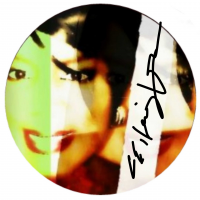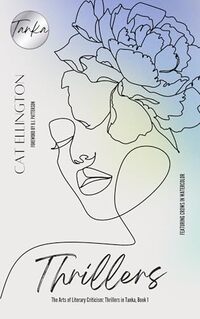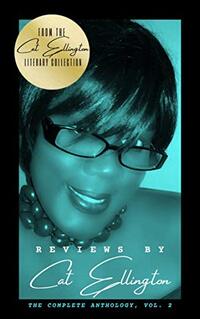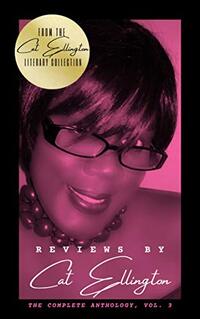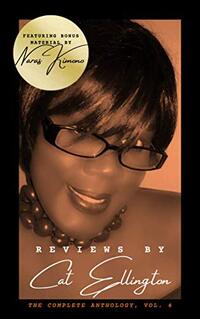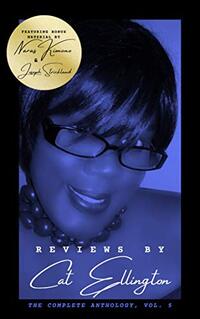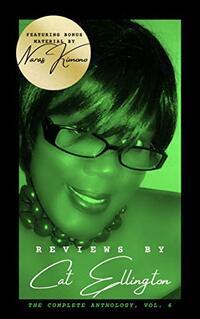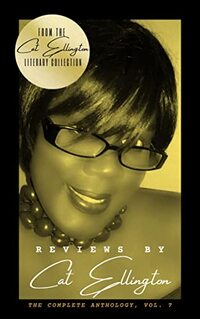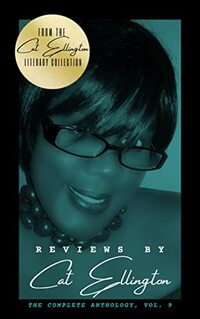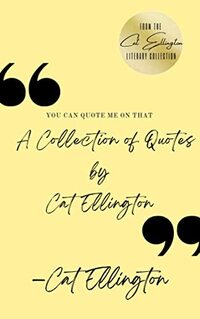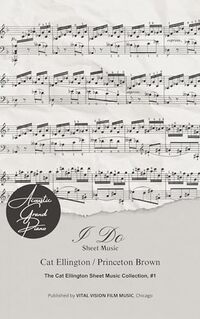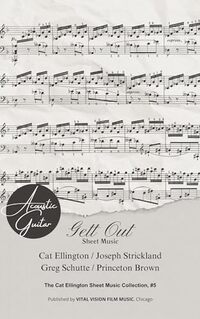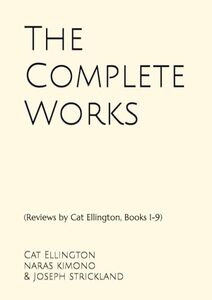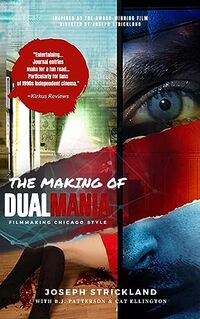Cat Ellington Interview Published on: 19, Feb 2025
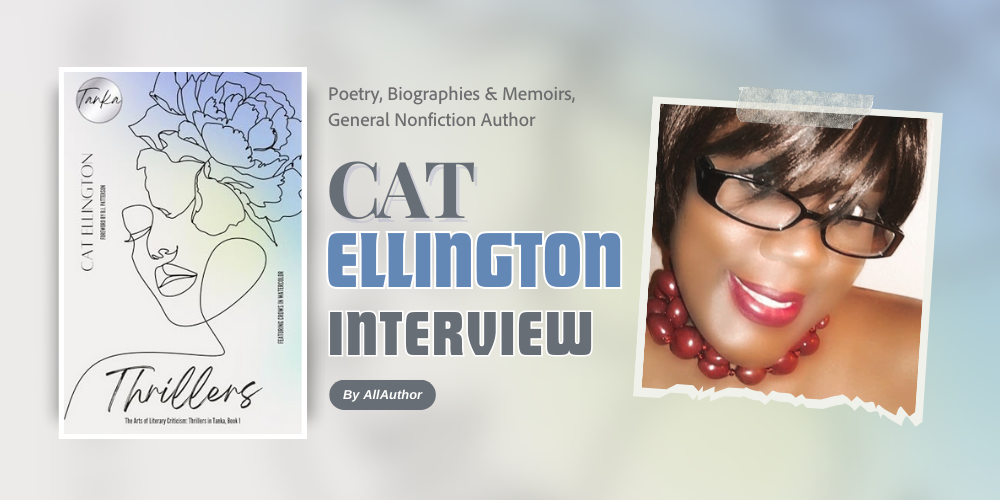 Can you share more about your first book review in 1979? What inspired you to critique “Hamburgers and Ice Cream for Dessert by Eleanor Clymer?
Can you share more about your first book review in 1979? What inspired you to critique “Hamburgers and Ice Cream for Dessert by Eleanor Clymer?
I was extremely fortunate to have incredible educators who nurtured my early-developed passions for reading and writing. It all started at home, as my mother was an avid reader who encouraged my older brother and me to read the books we had on our makeshift bookshelf. We read books for children and young adults and novels for more mature readers. At school, my classmates and I had a library class every Thursday. And it was during one period that our librarian, Ms. McGinnis, a woman I will never forget, read the Eleanor Clymer tale, "Hamburgers and Ice Cream for Dessert," to our entire class before instructing us to rate the book and write short reviews about what we thought of the book. She knew I loved to read aloud to my friends and write, so she singled me out that day, asking me to write the first review as a template for the class. I did, and she put a little gold star on it. I was so proud. I went home that day with my written review, beaming to my mother, full of confidence. I had written my first book review and realized that I liked it. I enjoyed writing the critique. Something about the act made me feel happy and relaxed and calm. It was like another world that I loved being in. It was a peaceful place for me: just me, my books, my thoughts, and my paper and pen. I could do what I loved. I could read books and soar with the written word. And that was my discovery with Eleanor Clymer's tale. I admired the title and the story. I will always love "Hamburgers and Ice Cream for Dessert" because it was the first book I ever read as a grade-school child and my first review. To this day, I still own an edition of it.
How has your approach to writing book reviews evolved since you started with “Reviews” by Cat Ellington?I offer a more comprehensive breakdown in my reviews now than when I first started composing them in the earlier years of my life. My personality is singular, demanding that I be different in my approach as a creative writer and artist. In the craft of literary criticism, I've always wanted my written works to be unique; I wanted my writing style to be different from that of other writers, so my works had to be distinctive in grammar and style and one-of-a-kind in spirit. I would have to open up and be free to express myself in a way that suited me and my voice as a literary critic. So, as I grew into my own as a creative writer of book reviews, I strove to be as imaginative as possible in the field. I started to add paragraph headings to set up the sections in the reviews, which was something I didn't do when I was younger. To help my readers better understand the books under my review, I incorporated a variety of references to other artists, books, musical works, films, motion picture characters, athletes, my own life experiences, etc. And it all worked well, as it represented my method of communication privately and professionally. That was how I evolved naturally. The natural ability to write is a gift I was born with; I only had to grow into my creative voice over time. The nine-book "Reviews by Cat Ellington" series is the perfect example. Throughout the series, my readers can track my maturity as a writer, from childhood to adulthood; they will note how my vocabulary expanded over the years. I am blessed to have a deep spiritual understanding of the world and people, and that wisdom makes it easier for me to keep growing as a writer in literature. My readers can expect an ever-evolving creative approach with my latest series, The Arts, in which I will continue to bring a new style of creative writing, merging works of multi-genre poetry with comprehensive structures of my trademark review method.
With nine books chronicling reviews from 1979 to 2023, what is the most rewarding aspect of documenting your literary criticism journey?Discovering new authors and new works of fiction and nonfiction literature along the way. As long as there are authors writing books I enjoy reading, my journey through the world of literary criticism will continue. I still read the latest releases of many of my favorite authors, like Stephen King, John Grisham, James Patterson, and Carl Hiaasen, to name a few. But I also admire many new authors, some of those on whose works I stumbled in this latest digital era, whose storytelling abilities are outstanding, namely Bianca Sloane, Sarah Pekkanen, Miranda Rijks, Greer Hendricks, Roger Stelljes, Jordan Belcher, Mary Kubica, etc. I used to fear that the words and review ideas would stop flowing and that I would repeat myself, which I did not want to do. But then I'd quickly come to my senses and understand that writing book reviews is a part of who I am and that each book I read is a different story written from the point of view of a different author. Each book is unique in spirit, and my analyses will always capture the essence of the books as I mold and compose the review structures to complement them. With that in mind, I didn't have to dread the thought of my creative writing well running dry. All I needed to keep going was a new story with a juicy plot, a new cast of characters, and a new level of drama. From there, I could break forth with a new and original review unlike any of the others I'd previously written, as there would always be something dissimilar to say in my writings. For me, such continuity is extremely rewarding.
How do you balance your work across multiple creative industries—literature, music, and film?I block off time for each job. Although I wrote my first book review earlier, my musical work would technically be the first-born of my three industry professions. Unlike my book review writing, which had only been a hobby back then, songwriting and music composition were my initial calling. The music industry would be my professional career. I wrote my first book review when I was nine, but I composed my first song when I was ten. Music was my first love, and working in the industry was my biggest childhood dream. I only wanted to be a famous songwriter and an American Society of Composers, Authors, and Publishers (ASCAP) member. I was aware of my other creative abilities, but music was, and still is, my first love. I continued writing reviews of every book I read, and the days and weeks became years, bringing with them an accumulation of dozens and dozens of written works - in music and literature. In 1993, Vital Vision Productions, an independent film production company based in my native Chicago, commissioned my talent services for a feature film. The company was producing a motion picture called "Dual Mania" and enlisted me to handle the casting duties for the project. I was twenty-two when I took the helm and started working with the film's director, Joseph Strickland, who discovered my eye for selecting talent and pushed me into the fray. By the summer of 1996, I had completed casting on the feature, and the project went into production. In 2018, Quill Pen Ink Publishing, a book publishing house also based in Chicago, decided to collect my book reviews, many of which were then decades old, in a series of books that specialized in literary criticism, hence the "Reviews by Cat Ellington" progression. A ton of work accumulated over 40-plus years, and much of that work is what people see in publications today. I humbly say that by God's divine grace, I can work in three branches of the creative arts and breeze through it all without burning out. When someone is doing something they love so much, it's not like work at all; it's just a fun cakewalk. They can do it in their sleep; it's second nature. It is a natural gravitation toward their passion. And that's how it is for me. Yes, I have a life outside of work. Yes, I get tired sometimes. Yes, I get irritated, frustrated, anxious, and even depressed sometimes. Yes, there are times when I need a break from it all. Yes, yes, yes; I'm human. But in moderation, I do what I love, and the jobs get done in all three fields. Luckily for me, I can appreciate a good challenge. It makes me a better artist.
What inspired the themes behind your poetry collection, “Memoirs in Gogyohka”?I had always toyed around with the idea of one day having my memoir written. When I was around 16 or 17 years old, I fantasized about Kitty Kelley telling the story of my life to the world in one hell of a juicy, unauthorized autobiography. I imagined that she would have researched her butt off and gotten hold of information about me from one source or another, including brow-raising details about all the lesbians and gay men who raised me. Kittie would have written the crap out of it! But that was a long-ago reverie. In my mind, I was already a public figure of note, even though I was still a member of the general public. I believed my memoirs would one day be published; only I had no idea how they would come about. In the early spring of 2016, I was sitting in my room, rearranging some old paperwork and looking through one of my diaries from the 1980s, laughing to myself as I read some of the old entries I'd written in it back then. I flipped through the pages, reminiscing, remembering, cherishing. And then I got an idea, a vision of sorts. It was unconventional, but I thought it was original and brilliant. The idea consisted of me writing my memoirs in a book for publication and collecting entries from my diaries to share moments of my life with my future public. I thought that aspect of the idea was beautiful enough, but another one soon followed it. I would stream the entries with a genre of short poetry for additional dramatic effect. I thought it was brilliant, something no writer had ever done before. And I was going to do it first. I challenged myself as to which genre of poetry I would use, and I pondered possible book titles. I am obsessed with syllables and syllabic structure. And I thought Gogyohka, a four-syllable word, rolled off the tongue beautifully, following the two-syllable word, memoirs. It was unique, original, and memorable. The more I repeated it, the more I loved it. And so, I heeded the vision that inspired me. The book would be titled "Memoirs in Gogyohka." Each Gogyohka preceding the entries in the release would be composed as an original short story for them. The Gogyohka poems would assist in telling the stories of segments of my life. I have several diaries and didn't know which entries to collect for the pending book, so I had to be still and listen. The voice of wisdom spoke another brilliant idea, and I quickly acted on it. I tore a few sheets of typing paper into strips, like bookmarks, and then I closed my eyes and added the individual strips of paper between random pages of my diaries. Once I finished adding the strips, I opened my eyes and flipped the journals open one at a time. Whichever entries I placed the strips between would be the ones collected for the book. That is why the date-stamped entries are out of chronological order in the title; every entry except "My First Diary, c. 1982," was randomly selected. Honest to say, I was satisfied with the random entries; I was glad that those parts of my life were the ones I would share with my readers. By the end of 2017, I had decided to add paintings of pink watercolor flowers to beautify the pages and symbolize the Japanese poetry form of Gogyohka.
Do you approach writing poetry and reviews differently? If so, how?Not at all. I typically approach writing my reviews and poetry from entertaining, literary, emotional, philosophical, and spiritual points of view. In both forms of composition, I tend to discern the universal nature of life and human beings by sharing wisdom, knowledge, and understanding through creative imagination, inspiration, insight, and intellect.
What was it like co-authoring “The Making of Dual Mania” and the related works with Joseph Strickland and B.J. Patterson?We began work on the book in 1997. And it was an exciting process, although sometimes tedious. Joe, to whom I'm married, and I had been working on "Dual Mania," the film itself, while also working to compile our journals containing all of his and my notes. But B.J. did an incredible job of getting parts of the foundation laid for us to build the film book on. We all put our heads together to form the concept, and Joe and I added our notes and interviews with B.J. to the body text. We also thought it would be a great idea to share a few of Joe's storyboards and a few production stills to help bring the film book to life with some behind-the-scenes imagery. Overall, "The Making of Dual Mania" took us over fifteen years to complete. But it was well worth the wait to finish and publish. I'm very proud to be a co-author of that work.
How does your work in sheet music, such as “The Cat Ellington Sheet Music Collection,"” influence your literary projects, or vice versa?It doesn't. My music publisher, The Black Jaguar Music Company, and I created my sheet music collection, published by my label, Vital Vision Records, to present my composed music scores in digital and print book formats. "The Cat Ellington Sheet Music Collection" is an arm of my work in the music industry, not in literature.
Your quote book, “You Can Quote Me On That,” offers personal insights. How did you choose which quotes to include?I didn't. Staff members at Quill Pen Ink Publishing decided which public quotes to collect for that particular publication. It was a fun project they were working on, and I thought it would be great. So we all started the concept, with me selecting the cover design and scripts. One of my assistants spent over a year between other duties selecting my quotes from several web and media sources before compiling them for the book. I wrote a Tanka poem in seven structures to celebrate the release of the reference, and then I named the book cover's black and yellow color scheme "Bumblebee." I also designed the book trailer for the release.
As a literary critic, what key qualities do you look for when evaluating a book?That's a great question. It all comes down to a gripping plot, intelligent writing, an engaging, memorable protagonist, a challenging antagonist, a gifted cast of supporting characters, and a fast-paced, short-chaptered storyline. I love thrilling and intriguing books that move along quickly and tell captivating stories. I have been reading books since I was a child, and I can discern the level of intrigue a book has just by how well-written its description is. A smooth, buttery, and juicy blurb denotes a splendid body text between the covers. On the other hand, a blotchy, poorly written book description can only indicate that a book will be monotonous to read. It's all in the writing. And it has always been my experience with books. When I choose books to read, the author's writing and vision have to capture and enrapture me; I have to be able to get lost in that fictional world. I love good story writing, I love good character development, and I love a great vision. I have to remember a book long after I've finished reading it.
How have you adapted your writing and publishing methods to the ever-changing literary industry?My publisher, Quill Pen Ink Publishing, is a boutique house that publishes nonfiction works of literary criticism, poetry, memoirs, and autobiographies. And the house publishes only my bibliography, at least for now. It has no plans to consolidate with any other publishing company. I write in my genres of specialty, and QPIP publishes the works in every available format, from digital to print. So we're adapting well to many new technologies. Our marketing strategy is unique in the way of independent book publishing firms, but our focus is very mainstream - if that makes any sense. We have learned a lot in this new digital age, and we're constantly learning from many mistakes, growing, and becoming a better entity in the evolving literary industry.
What has been the most significant challenge you’ve faced as an author, and how did you overcome it?Being an independent artist poses many challenges. And my career in literature is no different. When I published my first book in 2018, the year the Reviews by Cat Ellington series began, everything was new, and I faced much opposition, particularly on the Internet. I didn't get a lot of support, and I endured a tremendous deal of bigoted animosity from people, frustration, and stress. I didn't have a world-famous mainstream publishing company with ties to mainstream media outlets behind me endorsing my writing and investing money into marketing my work, so I dared to do it myself, making mistakes, correcting them, and then starting all over again. But I learned. I learned many invaluable lessons and gained a great deal of insight. I sat down and designed my book covers and chose my fonts, color schemes, and cover hue identifications. I invested my own money in my works and Quill Pen Ink Publishing. I invested personal wealth into building my publishing house into the respectable entity it is today. I contacted libraries, bookstores, and book databases for interviews and articles. In those earlier days, I heard more no's than yeses but kept going because I was not easily discouraged, thanks to my strong faith in Father God. I don't conform to the norm well. I was born with a spirit of defiance, and when faced with opposition, that defiance only intensifies. Like a strong wind at my back, it propels me forward. And I keep going. Even if I'm the only one on a narrow side street while everyone else is on a spacious boulevard, I keep going; I don't turn around and look back. That's just the type of spirit the Lord put in me. Faith and perseverance encouraged me to stay the course. And after seven years, with over two dozen titles to my credit, I'm still here, producing irrefutable works in the literary industry.
With over 24 titles produced since 2018, how do you maintain such a high level of productivity?Many of my works in literature, like my reviews and much of my poetry, were written years, decades ago. When my publisher decided to turn my former WordPress weblog, Reviews by Cat Ellington, into a book series, I had to transition the analyses to manuscripts. By the time I prepared to write book three in the series, several of the reviews included were ones of books I'd read in recent times. I was at liberty to choose the release dates for all of my titles, and I elected to have the books published on the special days of the people I love and admire, their birthdays, although a few of my titles had holiday releases. It was an important decision for me to release my books on the birthdays of my loved ones, and for that reason, publication dates were frequent, back-to-back, over any given year.
What upcoming projects or books are you most excited to share with your audience?The Arts is my latest book series, and I am tremendously excited about it. The debut title in the series, "The Arts of Literary Criticism: Thrillers in Tanka, Book 1," is scheduled for release in March 2025. I went crazy, creatively, with the new Arts series, uniting watercolor paintings of various bird species and poetry to symbolize every individual literary genre the series will highlight, from thrillers to romance to mysteries and so forth. It will be a new spin on my traditional literary criticism. In addition, I am preparing to get back into my casting director's chair to work on the ensemble selection for Joseph Strickland's next feature film. My jobs will be to handle the executive casting duties and write the film's soundtrack, as I did with "Dual Mania." It is a hectic time for me right now, to say the least.
How has your experience working with AllAuthor been?Exceptional, so far! I like it here; I like the vibe, the community, and the professional layout. It's all groovy; it's all good. I came upon AllAuthor while networking with author B.M. Hardin, who has an author profile in the database. I was shopping for her books when I saw a link to AllAuthor and clicked on it. And I am so glad I did because with such a barrage of Internet sites, I might have missed the blessing. And I don't like missing blessings, especially not great ones like AllAuthor. It only took a few days for my team at QPIP to get my bibliography and some of my noted quotes in the AllAuthor database with little or no effort. And I am pleased with that. I also love the way the AllAuthor team has made me feel at home as an author and the beautiful work it has done featuring "Memoirs in Gogyohka." The entire Featured Book project is unique, original, and highly creative; all the things I love where the arts are concerned. You guys do a fantastic job, and I am sincerely honored to be part of the AllAuthor community with a host of my fellow authors. Thank you so much for having me and my work here. You all do a fine job for the literary community. Keep it up. Keep going!
Share Cat Ellington's interview
Cat Ellington is an American author, literary critic, and multi-industry creative artist known for her prolific contributions to literature, poetry, and music. She gained prominence with her “Reviews by Cat Ellington” series, chronicling decades of book critiques from 1979 to 2023. Ellington has also co-authored books on film and music, further showcasing her artistic versatility.
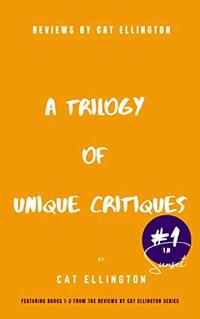 Reviews by Cat Ellington: A Trilogy of Unique Critiques #1 (The Unique Critique Trilogies)
Genre: General Nonfiction
Reviews by Cat Ellington: A Trilogy of Unique Critiques #1 (The Unique Critique Trilogies)
Genre: General Nonfiction
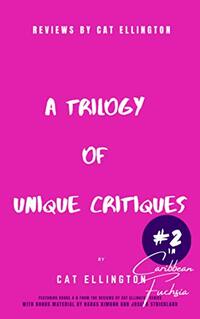 Reviews by Cat Ellington: A Trilogy of Unique Critiques #2 (The Unique Critique Trilogies)
Genre: General Nonfiction
Reviews by Cat Ellington: A Trilogy of Unique Critiques #2 (The Unique Critique Trilogies)
Genre: General Nonfiction
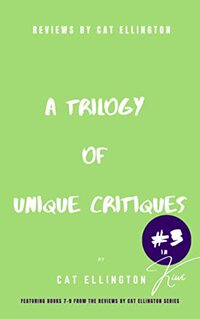 Reviews by Cat Ellington: A Trilogy of Unique Critiques #3 (The Unique Critique Trilogies)
Genre: General Nonfiction
Reviews by Cat Ellington: A Trilogy of Unique Critiques #3 (The Unique Critique Trilogies)
Genre: General Nonfiction
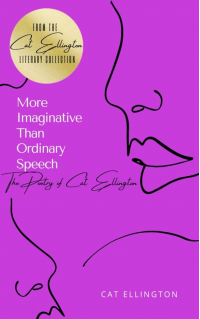 More Imaginative Than Ordinary Speech: The Poetry of Cat Ellington
Genre: Poetry, General Nonfiction
More Imaginative Than Ordinary Speech: The Poetry of Cat Ellington
Genre: Poetry, General Nonfiction
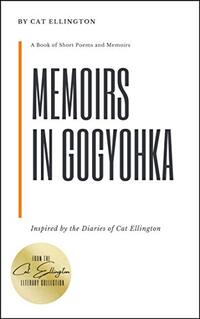 Memoirs in Gogyohka: A Book of Short Poems and Memoirs
Genre: Poetry, Biographies & Memoirs, General Nonfiction
Memoirs in Gogyohka: A Book of Short Poems and Memoirs
Genre: Poetry, Biographies & Memoirs, General Nonfiction
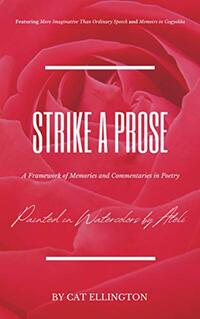 Strike a Prose: A Framework of Memories and Commentaries in Poetry
Genre: Poetry, Biographies & Memoirs, General Nonfiction
Strike a Prose: A Framework of Memories and Commentaries in Poetry
Genre: Poetry, Biographies & Memoirs, General Nonfiction
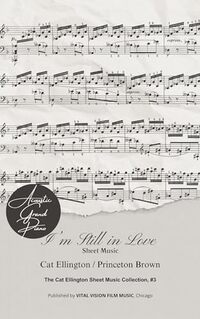 I'm Still in Love: Sheet Music (The Cat Ellington Sheet Music Collection Book 3)
Genre: General Nonfiction
I'm Still in Love: Sheet Music (The Cat Ellington Sheet Music Collection Book 3)
Genre: General Nonfiction
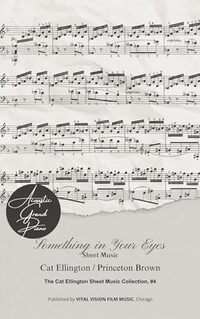 Something in Your Eyes: Sheet Music (The Cat Ellington Sheet Music Collection Book 4)
Genre: General Nonfiction
Something in Your Eyes: Sheet Music (The Cat Ellington Sheet Music Collection Book 4)
Genre: General Nonfiction
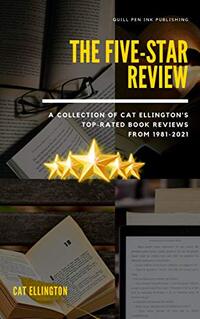 The Five-Star Review: A Collection of Cat Ellington's Top-Rated Book Reviews from 1981-2021
Genre: General Nonfiction
The Five-Star Review: A Collection of Cat Ellington's Top-Rated Book Reviews from 1981-2021
Genre: General Nonfiction
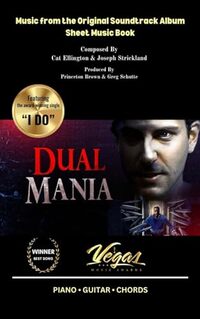 Dual Mania: Music from the Original Soundtrack Album - Piano/Guitar/Chords - Sheet Music Book
Genre: General Nonfiction
Dual Mania: Music from the Original Soundtrack Album - Piano/Guitar/Chords - Sheet Music Book
Genre: General Nonfiction
